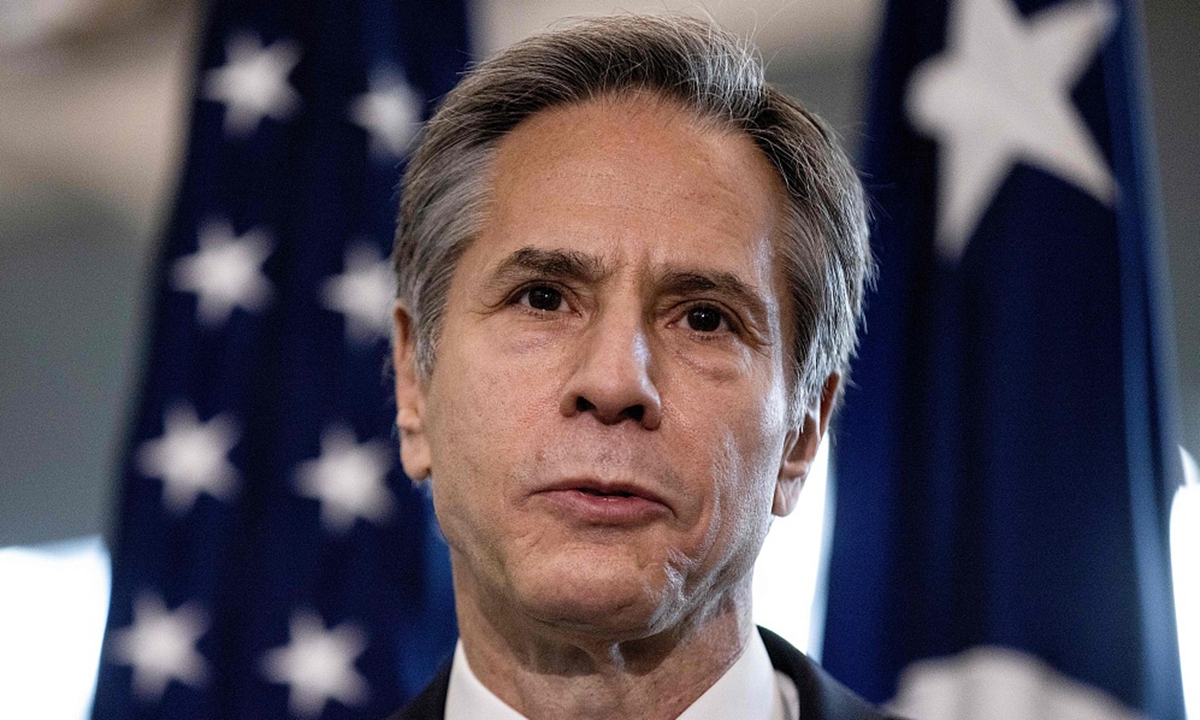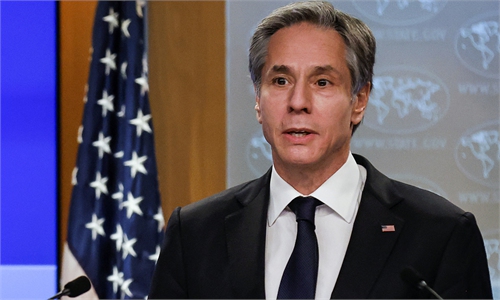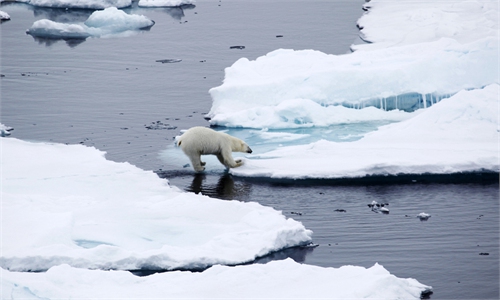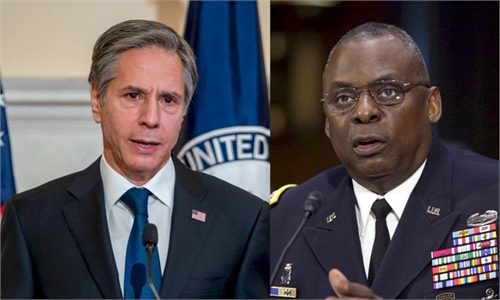
US Secretary of State Antony Blinken. Photo: VCG
US Secretary of State Antony Blinken announced on Wednesday sanctions on 24 Chinese officials, including those from the Hong Kong Special Administrative Region, under the "Hong Kong Autonomy Act" on Department of State website. The sanctions list also includes 14 vice chairmen of China's National People's Congress (NPC) Standing Committee. The US also threatened to sanction foreign financial institutions "that knowingly conduct significant transactions" with them.Blinken is still on his trip to Japan and South Korea. His latest agenda is supposed to be the "2+2" talks in Seoul. But he took a surprising turn to announce sanctions on Chinese officials, apparently eyeing the upcoming Alaska meeting between senior Chinese and US officials to be held on Friday. What stuffed his mind is Alaska, not Japan or South Korea.
This is a show of strategic aggression, but it also demonstrates US' diffidence. The tough talks on China in Japan and South Korea and the sanctions on vice chairmen of the NPC Standing Committee are aimed at pressuring China and setting the agenda for the upcoming dialogue in Alaska. But such a show goes against the original intention of the dialogue. Since the two sides show their desire to talk, they should find some common ground, otherwise they could just pressure each other without meeting each other.
The focus of Blinken's sanction statement is naming the vice chairmen of the NPC Standing Committee. But such sanction threats will not have any impact on Chinese officials. They have already been "sanctioned" by the Trump administration, and China sanctioned a number of US officials in response. If this US administration carries out a new round of sanctions, China is bound to retaliate.
Such US maneuvers show a tough stance toward China. This gesture can easily sell in the US, and the US is trying to export it to its allies. But Beijing will not buy it. The big stick of the trade war, the malicious attack on the Communist Party of China and the threat of decoupling did not hold China in awe. The US has no reason to expect that China would accept its lecturing as Washington's senior officials visit its allies or issue a statement to threaten sanctions. Such a game does not exist between major powers.
China sees that Washington no longer believes that it has the ability to influence the situation in Hong Kong, or that it can shake China's assertiveness on other core interests. However, anti-China sentiment is growing in the US, and the irrational desire of some forces to contain China is at odds with US' capabilities and the choices that a great power like the US should have in such occasions. Washington has become more and more anxious. Unable to act rashly against China, and fearing that radical public opinion in the US would not tolerate it from doing nothing, it has made a series of tough gestures to explore the way for its China policy.
The US claimed that they are attending the Alaskan dialogue from a position of strength. But as long as China decides to have a dialogue, the courtesy will go first.
But on issues such as Hong Kong, Taiwan and the South China Sea, China's position, morality and power are well matched. We have sufficient capacity to respond to changes without being aggressive or submissive.
An Alaskan dialogue with instructions from the US and obedience from China will never take place. If the US does not change its attitude, it is inevitable that it will run up against a stone wall.
US hyperbole over Hong Kong has turned off the appetite of most members of the international community. Hong Kong is part of China's territory. Some Americans, in the form of public opinion, make a few comments on Hong Kong's governance. Washington is trying to dictate how Hong Kong should be handled. If that is the case, China can only ask, who do they think they are? The more extreme their performances, the more they show that some of their old power is gone. They should remember this: China is not what it was a hundred years ago!




